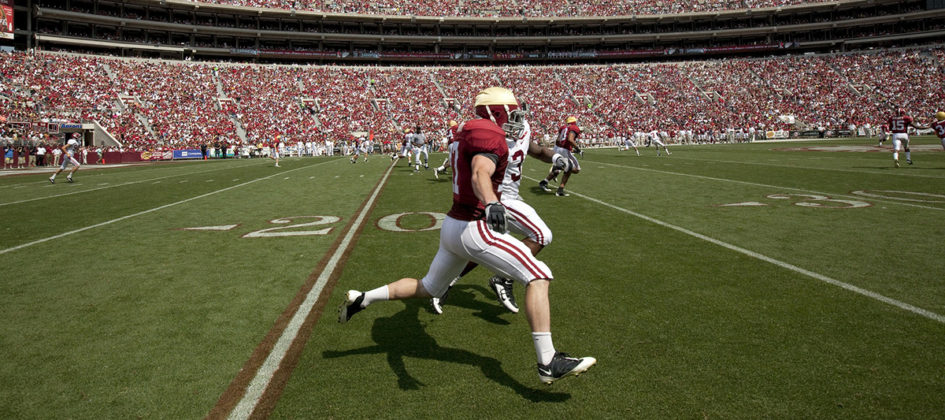
Atavus Sports worked with Matchbox, Management Foresight and Microsoft to uncover insights in its data, improve its analytics process, and use the power of the hack with Azure Machine Learning to point to areas of opportunity and eliminate wasteful effort.
Tackling the problem
Atavus is a sports analytics and training leader with a focus on tackling in American Football: making it safer and more effective at all levels of the sport. For college programs, Atavus has an expert-centered analytical process using video and field-captured data. Atavus offers training and certification to high-school coaches, recently managing the entire program for the state of Texas.
Atavus has deep domain knowledge in tackling performance and its relationship to team performance, player performance, and player safety. Given this expertise and a desire to improve, scale and automate its processes, Atavus looked to Machine Learning and Computer Vision, and found a local Seattle partner in Matchbox Mobile to help take those important first steps.
Success in Machine Learning is a Team Sport
Atavus recruited Matchbox Mobile, a professional services company skilled in applied R&D, strategy, consulting and software projects, to uncover fundamentals about its process, its data and IT infrastructure, and its partners, in the competitive landscape of sports analytics. One of the key outputs of this discovery phase was an identified need to solidify the data picture behind the Tacklytics promise.
Atavus and Matchbox therefore brought in partners Management Foresight to uncover and improve correlations and associations in the data, using statistical analysis. Management Foresight was able to refine the important metrics used to assess the quality of a tackle, and identify key predictors of in-game events based on tackles. This essential activity laid the foundations of a machine learning approach.
The next initiative was to address the opportunities for scale and automation through computer vision, and use the idea of a hack-fest to test several ideas quickly. This is where Microsoft came in to support the team.
Microsoft provided Azure credits, facilities and Azure AI experts to conduct a hack – a three day on-site workshop – to test a variety of potential methods to improve the analytical process. The hack’s goal: find the best way with computer vision to help Atavus Scale and Automate. The outcomes of the hack were:
- Computer vision was not the easiest path to scale and automation.
- The hack process itself is very efficient and effective in identifying solutions and eliminating dead ends.
- The business and statistical analysis before the hack were essential to setting the boundaries of the problem.
- Microsoft’s ML tools and VMs on Azure are powerful and easy to use.
Generally, through the three phases of the project, Atavus and its partners learned some important lessons:
- In today’s environment, with the right approach, the right data and support, AI can be an element to success in your business.
- Success is a team sport, and success in AI is no exception: Atavus brings deep domain knowledge; Matchbox, practical problem solving and understanding of applied AI; Management Foresight, statistical rigor and data analysis; Microsoft, tools, technology, platforms and processes.
- There is power in the hack or design sprint method, and it can be applied to AI problems too.



